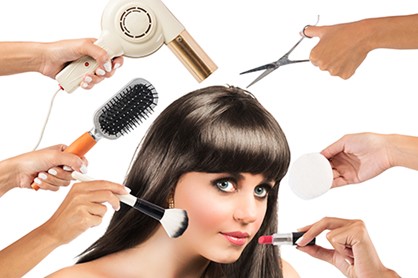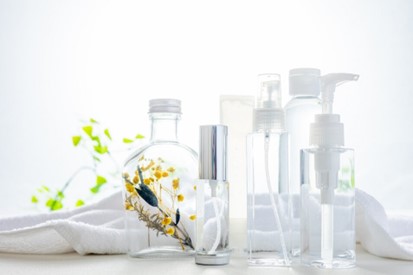Green cosmetics, health care, and time-saving beauty: Japan’s post-Covid epidemic consumption focuses on efficiency and balance inner and outer environments
The restrictions on activities due to the coronary disaster have been gradually lifted, and the mode of self-restraint has faded. Although there were hopes for so-called “revenge consumption,” the situation has remained the same as before, with the economy cooling down and people’s lives being affected by the infection.
In addition, the high cost of living triggered by some localized regional frictions and the rapid depreciation of the yen have not stimulated consumption to the same degree.
Although the unstable six months of 2024 1st half oscillated between such an uncertain future and a slightly liberated mood, Japanese consumers are beginning to think about the relationship between ‘their inner and outer environments’, the relationship between work and life balance.
The change in social awareness due to the spread of the SDGs, the need for stress care due to the Corona disaster, and the increasing number of people seeking spiritual happiness and a more careful lifestyle in a time-pressured world overflowing with goods and information are all major factors.
Cosmetics aren’t the basic Beauty Care anymore, cosmetic consumption that values health, autonomy, sustainability and ethics is in the trend, more and more Japanese customers will remove the veneer of cosmetics to explore and evaluate their deeper values and their essence.

Time Performance Cosmetics is trendy
The Cosmetic industry is now paying attention to the trend of “time value performance consumption,” a consumption trend that has begun to spread mainly among Generation Z.
“Time performance,” meaning time vs. effectiveness, has been attracting attention since around 2022, and this trend is accelerating in the beauty industry as well.
In fact, an analysis of word-occurrence rates of word-of-mouth comments posted online shows that while “time-shortening” has remained flat, “Time performance” has grown significantly, with a seven-fold increase in occurrence rate over 2024.
A study says that the reason why a wide range of generations have become more type-oriented and time-consuming is deeply related to the change in values and digitalization. The first industrial revolution around the 18th century further accelerated the trend toward rationality, which has been further reinforced by “digitalization” since the beginning of the 21st century.
The spread of the Internet has made it possible to collect information efficiently, and social networking has strengthened the tendency to associate only with people who are beneficial to one’s interests. In this way, a value system has spread in which “the more rational, the better” in many things. Time is limited, time is short and valuable. Even for skincare and makeup, we tend to spend less time, do it more effectively.
Sleep Care Cosmetics, a Big Hit
This year, products focusing on sleep have been a hit one after another.
The following products were selected in various awards, including Nikkei TRENDY (Nikkei BP) and the “anan Karada-Yo-Ioi-Mono Grand Prix” (Magazine House), in which women’s magazine editors actually try and select products for their bodies. Nutritional drink to relieve fatigue while sleeping, Haircare product for “night time beauty” that focuses on dryness and friction damage during sleep. More and more products are coming to Japan, targeting the opportunity to achieve better sleep and a better skin at the same time.
Japan has the fewest hours of sleep in the world, and only 30% of the population is satisfied with their sleep, which seems to be the background to the increasing number of cosmetics and functional food products in the sleep field on the market, the unprecedented new ideas such as fatigue recovery during sleep, haircare during sleep, and warming the ears to fall asleep that captured the hearts of many people. Beauty came from good sleep and this trend is also related to the last trend ‘short-time, time saving beauty’ as well.
Green Beauty & SDGs
Clean beauty is a new genre of cosmetics born from the growing health consciousness that has made people more particular about the ingredients of cosmetics, and from the needs of modern people to use environmentally friendly products. The number of brands that carry the Clean Beauty label is increasing worldwide, including Japan.
The definition of “clean beauty” varies widely, but there are three main points well noticed by Japanese customers.
1. Natural ingredients and no ingredients that are harmful to the skin or body.
2. Recyclable materials are used for packaging, etc.
3. They do not test on animals and are considerate of the working environment of the people involved in their production.
And with the spread of the SDGs, cosmetics that are gentle to the body, such as cosmetics that are comfortable to use and that have less burden on the body, as well as cosmetics that protect the natural environment and that allow people and animals to live on a sustainable planet, are attracting attention.
Big group such as SHISEDO, POLA & ORBIS are now working on a project covering the following topics:
– Development of environmentally friendly containers and packages
– Development and promotion of containers that can be refilled and reattached
– Collection and recycling of used plastic containers
– Development of containers and raw materials using plant-derived materials
– Initiatives focused on supporting women’s activities and gender equality
Green/Clean beauty not only needs to bring the natural joy and peace to our skin, but also have to take care of our natural environment.
Men’s Cosmetics, Diversification of Beauty Needs is Just Around the Corner
The excitement of men’s cosmetics is even more powerful this year. The number of media and retailers that carry men’s cosmetics has increased, and now not many people feel uncomfortable with men’s beauty behaviours such as skincare, hair removal, nail care, and makeup.
The focus of attention is Men’s Non-No. The Men’s Non-No Beauty Awards 2024, Japan’s largest men’s cosmetics award, is being held for the eleventh time. The special website for the awards shows a surprisingly large number of categories, with a total of 18 in all. The award categories are as detailed as those in women’s beauty magazines, including face wash, lotion, sheet mask, all-in-one, base makeup, eyebrow and eye makeup, beauty gear, and unwanted hair care.
The user base is still limited, as men are not as interested in taking care of themselves as women, which means they are less likely to take beauty actions.
In addition, the beauty categories in which they are interested are not as broad as those for women, so it is not easy to stimulate consumption, but there is plenty of room for growth, especially among younger consumers. It will be interesting to see how the men’s cosmetics market will grow, and what impact this will have on the women’s market. This is also an interesting question.
Expansion of the DtoC model
DtoC stands for “Direct to Consumer,” and refers to a business model that does not use wholesalers or retail stores as intermediaries, but approaches consumers directly and leads to contracts and purchases.
Examples include cosmetics brands such as DUO, whose main product is cleansing balm, and SHIRO, which also sells fabric products and home fragrances.
A similar term is BtoC, which refers to business-to-consumer, or business-to-business transactions between retailers such as department stores and supermarkets and consumers.
The expansion of the DtoC model has been driven by recent consumer needs.
They are looking for products that not only offer functional value, but also unique concepts and stories, and unique experiences (high quality and uniqueness), and demand is growing for DtoC models that can introduce product concepts directly to users.
Feeling inspired?
Then why not visit one of the in-cosmetics events around the world?



